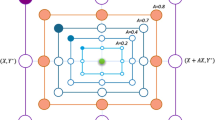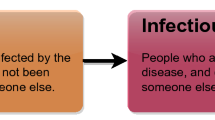Abstract
Emerging infectious diseases affect a large number of people throughout the world. Preventing the spread of viruses and mitigating their adverse societal and economic effects are major challenges facing all institutions in society. When reacting to events occurring in real-time, approaches based on human decision-making systems usually encounter difficulties in sorting out the most efficient mitigation strategies. In this paper, we present the framework for a real-time data-driven decision support tool for policymakers. Our framework is based on a reinforcement learning algorithm meant to optimize governmental responses to the state of the epidemic at each time-step. This framework adapts to changes in epidemic-spread given the advances in disease treatment methods and public health interventions. The mitigation strategy is adjusted based on the government’s priorities in a specific region. Our model is validated based on the COVID-19 data collected from New York state, USA.
Access this chapter
Tax calculation will be finalised at checkout
Purchases are for personal use only
Similar content being viewed by others
References
World Health Organization, et al.: Pandemic influenza preparedness and response: a WHO guidance document. World Health Organization (2009)
Li, Q., et al.: Early transmission dynamics in Wuhan, China, of novel coronavirus-infected pneumonia. New Engl. J. Med. 38(13), 1199–1207 (2020)
Cooper, I., Mondal, A., Antonopoulos, C.G.: A SIR model assumption for the spread of Covid-19 in different communities. Chaos Solitons Fractals 139, 110057 (2020)
Ahmad, R., Xu, K.S.: Continuous-time simulation of epidemic processes on dynamic interaction networks. In: Thomson, R., Bisgin, H., Dancy, C., Hyder, A. (eds.) SBP-BRiMS 2019. LNCS, vol. 11549, pp. 143–152. Springer, Cham (2019). https://doi.org/10.1007/978-3-030-21741-9_15
Acemoglu, D., Chernozhukov, V., Werning, I., Whinston, M.D.: Optimal targeted lockdowns in a multi-group SIR model, vol. 27102, National Bureau of Economic Research (2020)
Bjørnstad, O.N., Finkenstädt, B.F., Grenfell, B.T.: Dynamics of measles epidemics: estimating scaling of transmission rates using a time series sir model. Ecol. Monogr. 72(2), 169–184 (2002)
Smith, M.C., Broniatowski, D.A.: Modeling influenza by modulating flu awareness. In: Xu, K.S., Reitter, D., Lee, D., Osgood, N. (eds.) SBP-BRiMS 2016. LNCS, vol. 9708, pp. 262–271. Springer, Cham (2016). https://doi.org/10.1007/978-3-319-39931-7_25
Obadimu, A., Mead, E., Maleki, M., Agarwal, N.: Developing an epidemiological model to study spread of toxicity on YouTube. In: Thomson, R., Bisgin, H., Dancy, C., Hyder, A., Hussain, M. (eds.) SBP-BRiMS 2020. LNCS, vol. 12268, pp. 266–276. Springer, Cham (2020). https://doi.org/10.1007/978-3-030-61255-9_26
Khadilkar, H., Ganu, T., Seetharam, D.P.: Optimising lockdown policies for epidemic control using reinforcement learning. Trans. Ind. Nat. Acad. Eng. 5(2), 129–132 (2020)
Kahn, G., Abbeel, P., Levine, S.L.: Learning to navigate from disengagements. IEEE Rob. Autom. Lett
Schrittwieser, J., et al.: Mastering atari, go, chess and shogi by planning with a learned model. Nature 588(7839), 604–609 (2020)
Vereshchaka, A., Dong, W.: Dynamic resource allocation during natural disasters using multi-agent environment. In: Thomson, R., Bisgin, H., Dancy, C., Hyder, A. (eds.) SBP-BRiMS 2019. LNCS, vol. 11549, pp. 123–132. Springer, Cham (2019). https://doi.org/10.1007/978-3-030-21741-9_13
Keeling, M., Danon, L.: Mathematical modelling of infectious diseases. Br. Med. Bull. 92(1), 33–42 (2009)
Wan, R., Zhang, X., Song, R.: Multi-objective reinforcement learning for infectious disease control with application to Covid-19 spread. arXiv preprint arXiv:2009.04607 (2020)
Dan, J.M., et al.: Immunological memory to SARS-Cov-2 assessed for up to 8 months after infection. Science 371, eabf4063 (2021)
Peng, X.B., Kumar, A., Zhang, G., Levine, S.: Advantage-weighted regression: simple and scalable off-policy reinforcement learning. arXiv preprint arXiv:1910.00177 (2019)
Mnih, V., et al.: Human-level control through deep reinforcement learning. Nature 518(7540), 529–533 (2015)
van Hasselt, H., Guez, A., Silver, D.: Deep reinforcement learning with double q-learning. In: Proceedings of the AAAI Conference on Artificial Intelligence, vol. 30, pp. 2094–2100 (2016)
Author information
Authors and Affiliations
Corresponding author
Editor information
Editors and Affiliations
Rights and permissions
Copyright information
© 2021 Springer Nature Switzerland AG
About this paper
Cite this paper
Vereshchaka, A., Kulkarni, N. (2021). Optimization of Mitigation Strategies During Epidemics Using Offline Reinforcement Learning. In: Thomson, R., Hussain, M.N., Dancy, C., Pyke, A. (eds) Social, Cultural, and Behavioral Modeling. SBP-BRiMS 2021. Lecture Notes in Computer Science(), vol 12720. Springer, Cham. https://doi.org/10.1007/978-3-030-80387-2_4
Download citation
DOI: https://doi.org/10.1007/978-3-030-80387-2_4
Published:
Publisher Name: Springer, Cham
Print ISBN: 978-3-030-80386-5
Online ISBN: 978-3-030-80387-2
eBook Packages: Computer ScienceComputer Science (R0)




